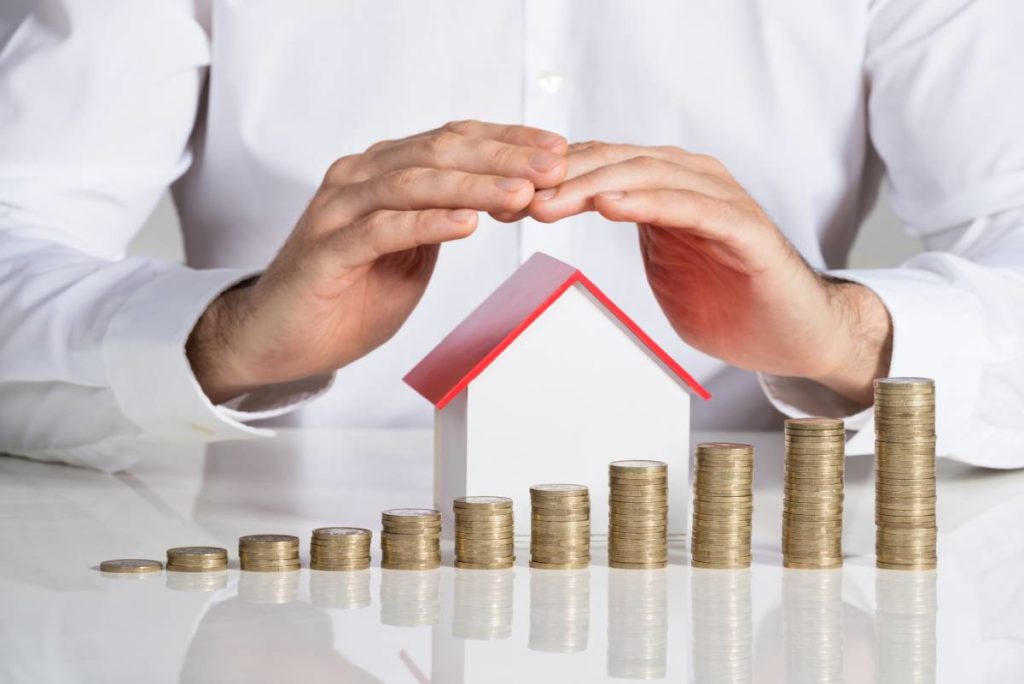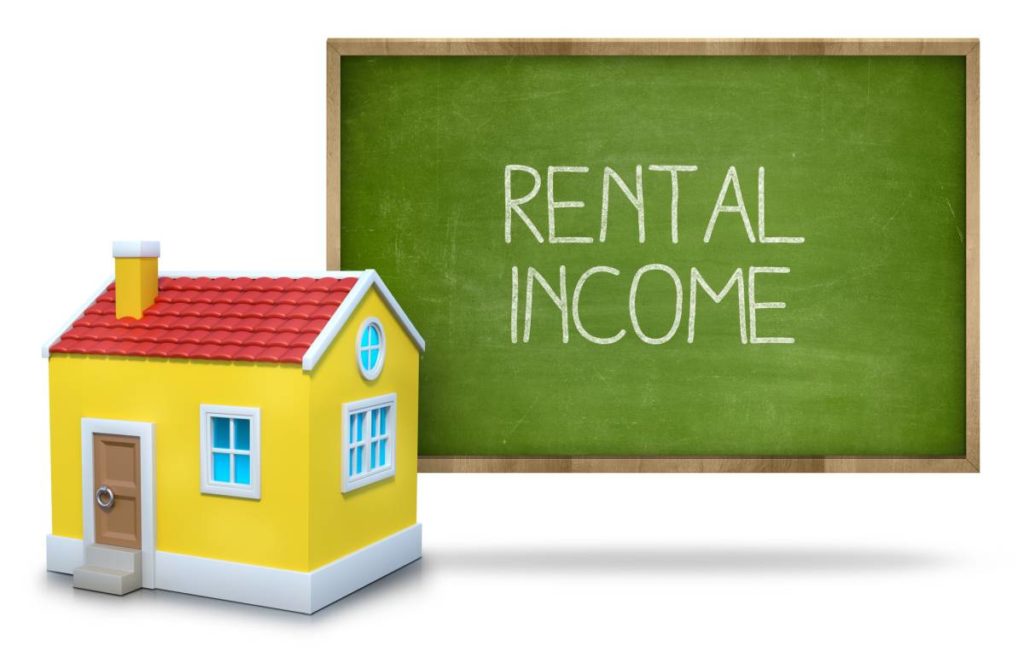Property is one of the most popular investment options in Australia and a great way to build your wealth.
However, it's a long-term commitment that isn't for everyone. Consider the following benefits and risks to help decide if it's the right option for you.
Consider the options
Have you considered renovating your current home, or looking into applying for a top-up home loan, and turning it into an investment property?
Benefits of property investment
- Property is a reasonably secure, long-term investment
- It's a stable, visible asset
- An investment property can earn rental income that potentially covers loan payments and other expenses
- You can sell it in the future and benefit from capital gains
- Building equity in your investment home loan allows you to expand your portfolio with additional investments
- It can provide additional financial benefits through taxation and gearing
- Expenses associated with the investment property can be offset against income from rent, and you may be able to claim depreciation on assets like furniture, carpeting and whitegoods
- Investing in property may be an excellent way to diversify your portfolio and reduce risk if you have other investments like cash, shares or managed funds.
Understanding the risks
Like any investment, there can be risks involved. The income from rent may not meet your expectations, or the value of the property may decline. You may not be able to access your money quickly and may earn higher returns on a different type of investment. Talk to a lending specialist to see if buying an investment property is right for you.
Can You Afford an Investment Property?
You've bought your first home chipped away at the mortgage for a while - now your home has risen in value. You're feeling a bit more comfortable financially, and you're starting to wonder if you can afford an investment property.
Finding the answer to this question raises several interesting points that will help you decide if this approach is suitable for you.
From a financial strategy perspective
Deciding whether you can afford an investment property will, for many people, be a matter of first sorting out your priorities.
- Why do I want to buy an investment property?
- How will this fit into my long-term financial strategy?
- What type of investment property do I want: one that brings high rental yields or one that I can sell it at a profit in five or ten years?
- Do I want to renovate to add value or do I want a property that I can bring tenants to immediately?
- Do I want to buy a house or an apartment?
- What will be the interest rate on my investment home loan?
All of these questions will help you formulate your strategy and lead you closer to the answer of whether you can afford the type of investment property that fits into your long-term plan.
From a practical perspective
Here's a list of the expenses you need to be aware of if you decide to become a property investor:
Deposit. If you want to avoid the cost of lenders mortgage insurance (LMI), you'll usually need a deposit of 20% of the property's value. Shop around and compare loans, as you may be able to find a mortgage with a loan-to-value ratio (LVR) of as high as 95%, meaning you'll need a smaller deposit.
Home loan. In addition to repaying the principal amount you borrow, there are other costs associated with your loan. There are establishment and application costs to consider, as well as legal fees, valuation fees and monthly or annual fees. LMI can also be a costly expense if you have a deposit of less than 20%, and then there are the ongoing interest repayments on the amount you borrow. A range of other fees may apply, so read the fine print before you sign up for a home loan.
Purchase costs. There are other costs associated with the purchase that you'll need to consider. This includes stamp duty, the amount of which varies from state to state and is based on the price of the property. You'll also need to consider the cost of the legal transfer of ownership ($650-$850), registration fees and the cost of a solicitor or conveyancer. Building and pest inspections will also need to be conducted before the sale of the property goes through, which could add $500-$1,000 to your expenses. Title searches are another added cost.
Buyer's agent fees. An increasing number of investors are using buyer's agents to help them find and purchase the right property. If you choose to go down this route, you'll need to factor your agent's fees into calculations. As a general rule, buyer's agents either charge a fee that is 1-2% of the property purchase price or a flat fee of between approximately $5,000 and $15,000.
Insurance. Building insurance can protect your investment property against fire, storms, theft and a wide range of other risks. At the same time, Landlord Insurance provides cover if tenants damage your property or default on their rent. A variety of factors influences the cost of this type of protection. These factors include; the size of your property, the material used in its construction, and where the property is located.
Property management fees. You can manage your investment property yourself if you have the time and knowledge, but most people choose to employ a professional property manager to look after their investment home. Property managers perform duties such as sourcing and screening tenants, holding open houses, and organizing any repair or maintenance tasks that need to be completed. As a general guide, expect to pay around 7-10% of your rent in property management fees.
Repairs and maintenance. Over time, your property may need repairs. Taps will leak, fittings and fixtures will need to be replaced, and some features of the house or apartment will simply break down due to general wear and tear. You should be prepared to meet the cost of any repairs and maintenance that need to be carried out at the property. Plumbers, electricians, builders, and a range of other trades may need to be called upon to keep your property in tip-top shape. Repair and maintenance expenses are generally lower on newer properties as they are less likely to have parts break down.
Strata fees. If you buy a townhouse or unit, you'll have to pay ongoing body corporate fees. These fees cover the cost of building insurance and expenses associated with maintaining common areas, and they vary depending on the size and type of the building, where it's located and its features. Don't forget to examine the strata fees you'll need to pay before you decide to buy a property.
Council rates. Check with the local council to find out the average quarterly rates in the area for a property of the same size as yours. Factor this amount into your budget to help you calculate the potential return on your investment.
Other costs. Depending on your circumstances, additional costs you may need to consider include:
- Accountant's fees to help you calculate rental income and expenses when filing your tax return
- Pest control expenses
- Costs incurred when a tenant moves out and you need to find a new one
- Renovation costs if your property is due for an upgrade to increase its 'liveability' and make it more attractive to prospective tenants
- Travel and accommodation expenses if you need to travel to inspect your property or oversee maintenance
- Land tax payable to the government on your investment property
- The cost of connecting all the utilities and services to your property for tenants
- Agents' fees, legal fees, advertising costs and other expenses to ensure the property is in top condition
From the bank's perspective
Once you've decided that an investment strategy is a great idea to advance your long-term financial plan and you feel you can afford your mortgage and expenses without it negatively affecting your lifestyle, you then have to figure out whether the bank thinks you can afford an investment property.
Buying an investment property continues to be one of Australia's favourite ways to invest. An investment property should be about increasing your wealth and securing your financial future. There is, however, a common misconception that property investing always delivers positive returns; while this is true most of the time, it certainly isn't an instant road to riches. You need to keep in mind that how effectively you manage your investment will determine whether or not the investment helps you reach your financial goals. The cost of owning an investment property can be surprisingly low after you take into account your rental income and the tax deductions you'll be entitled to.
Investing in the property market can provide many ways in which to profit, but it can also be fraught with information overload.
Buying an investment property can often place a homeowner on unfamiliar ground, and that's even if they've purchased a property in the past.
Unlike your primary place of residence, an investment can provide you with a steady rental income over time in addition to the rewards that come with capital growth – and it's not to forget that there are a plethora of ways in which to invest in the market and turn over a profit.
An investor's mindset has to be of the proactive kind; they have to be open to learning how they can put their money to hard work, and they have to take the time to understand and assess their financial options. It's all about being able to buy under market value and then add value. It's about investing in real estate that's going to provide enough cash flow that doesn't impact your after-tax cash flow and doesn't impact on your lifestyle.
However, just like buying a home, there are high stakes involved when it comes to purchasing your first investment property, and several other influential factors that will shape how much goes back into your pocket. But how do you know whether you are ready to invest? And how much cash or equity do you need to have in hand to begin?
What do you want to achieve financially?
The biggest mistake that people make when they talk about investment property is that they don't have an idea of what they want to achieve financially. People have a general goal of earning enough money to be rich or financially free, but they don't quantitatively know what that means. In other words, they don't have a monetary goal of how much passive income they would need to generate to quit their day job and still live comfortably while growing their investments.
Alright, so what do you want to achieve financially? Sit down and write out what you want to achieve without making it too complicated. I've found that the easiest way to do this is to consider what you earn and whether or not you can live off of that income right now. If so, then you can make that your financial goal and adjust it accordingly.
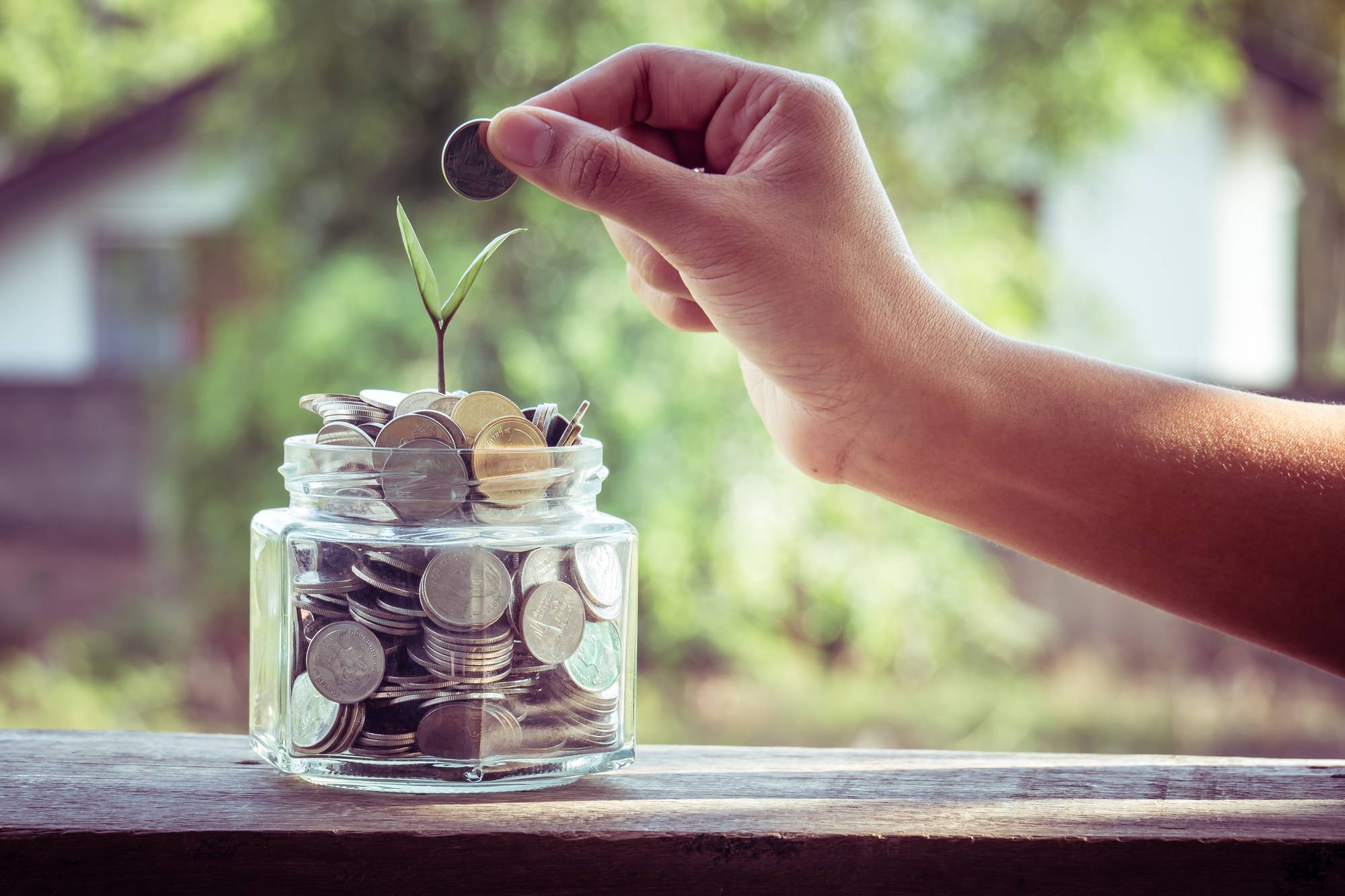
Choosing the right property at the right price
Investing in real estate is usually all about capital growth, so choosing a property that is more likely to increase in value is the most critical decision you will make, so buying at the right price is vital.
Unlike buying shares where the value of a company is transparent, real estate is more challenging to price; this, however, provides you with the opportunity to acquire an asset below its actual market value if you are patient and knowledgeable. The key for you is to do your research, work out what everything is selling for in and around the area, and then you'll discover that soon you'll become very good at working out what a property is worth – you'll know a bargain when you see it. Never consider purchasing real estate in an area that you are unfamiliar with, particularly when you are approached by real estate spruikers marketing interstate or offshore properties, many of these real estate marketing companies are paid very high commissions resulting in the price of the property being hugely inflated. If you find a property that you like and are unsure of its real value, we'd suggest contacting another lender or us so you can arrange for an independent valuation to be done on behalf of a bank. Once you are armed with this information, you can often use this as an excellent negotiating tool.
You probably aren't aware, but lenders and mortgage insurers have valuable data on different locations and property developments, and you should try and access this information to assist you to avoid picking the wrong investment property. Whatever you do, never decide to buy an investment property based on getting a tax deduction – always focus on making the right investment choice.
Buying an investment property is different from buying a property in which you will live and want to build as your home. You need to have a different set of criteria for choosing the type of property (house, apartment or duplex) and the area (city or suburb) you buy-in. Investing in real estate is about capital growth, so finding a property that will increase in value at the right price is critical.
Don't be surprised if this takes longer than you expected. Use sites like Australian Property Monitors to discover the growth potential of different suburbs. If you are thinking of buying interstate, be sure to do a first-hand recce - those glossy property brochures and websites often make the area or buildings look more prominent, cleaner and more open than in real life.
Look at:
- areas where rental income is high compared with property prices
- recent sale prices to give you an idea of property prices
- vacancy rates in the neighbourhood. Talk to some local real estate agents about rental vacancies
- council or government plans - are there any new zoning changes planned or developments that may negatively or positively affect the property prices in the area
- neighbourhood features: proximity to transport, schools, hospitals, and shopping areas
- estimated property maintenance costs
- property layouts and features: number of bedrooms, bathrooms, outdoor space etc.
Ensuring that you have a steady rental income stream is also vital because this cash flow will make the holding of the asset more affordable and provide income.
Different classes of residential property – home units, houses and land – can outperform each other over time. For example, vacant land will provide no rental income but may appreciate more quickly if purchased in an area with limited supply. Investing in a home unit might mean fewer maintenance costs than investing in a freestanding weatherboard house. Some areas offer higher rental yields, but you must do your homework as often these properties provide lower capital growth opportunities.
It is also essential that your property suits the demographics of renters in the area. For example, if it is near a university, more bedrooms will be in higher demand than a big backyard for kids to run around. A family home that is close to schools and parks on a quiet street will be more desirable than a property on a busy road.
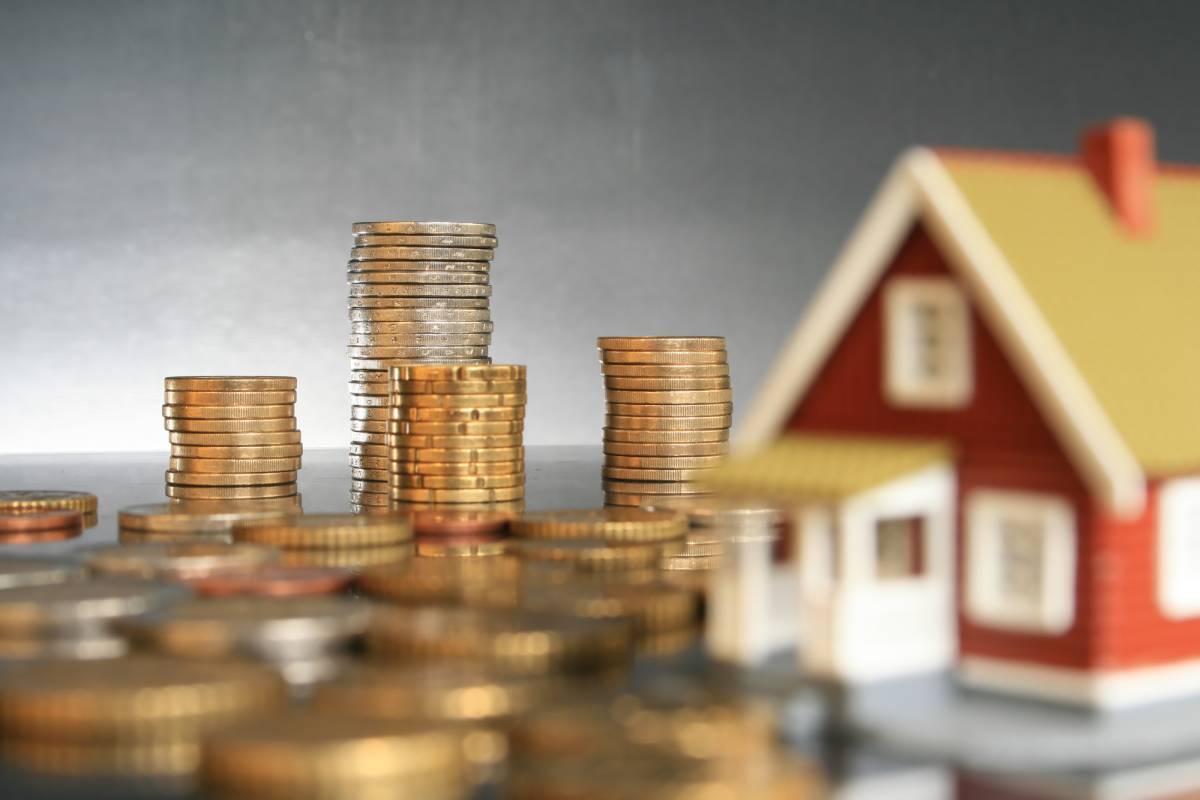
Do your sums – Cash Flow is always king!
Investing in property is a proven path to long-term wealth. However, you should consider it a medium to the longer-term type of investment, so you'll want to make sure that you can afford to maintain your mortgage repayments over the long term. You will not want to have to sell your investment property until you are right and ready, and if you were to encounter some financial stress, this could force you to offload the property at the wrong time.
Once you own an investment property, it can be quite inexpensive to keep it and service the loan, that's because you earn rent and get a tax deduction on many of the expenses associated with owning the property and remember that over time rents tend to increase as does your income – so expect things to get easier over time.
Here is an example of what it might cost you to own an investment property. We recommend that you look at the cost of servicing the loan on an after-tax basis, this way you can put the price in real terms for you.
Purchase Price of Property: $500,000 Stamp Duty and other costs: $20,000 Amount Borrowed: $520,000 Rental Income Received: $450 per week
Ongoing Costs Interest Cost @ 5.00% p.a: $26,000 Rates: $1,500 Land Tax: $804.00 (Calculate your land tax in NSWexternalLink ) Agents Fee @ 7%: $1,638 Insurance: $500
Total Costs: $30,422 Less Rent: $23,400 ($450 per week x 52) Annual Shortfall: $7,022 Less tax deduction: $3,160 (assuming a tax rate of 45%) Annual after Tax cost: $3,862 or the equivalent of $74.26 each week
In summary, in this example, your cost of holding this investment property works out at only $75 per week. Now I like to put that cost in a form that makes sense to me – for example, the cost of holding this investment property is perhaps a tank of petrol or a couple of bottles of nice wine.
Make yourself aware of taxes involved in property investing and add these into your calculations. Advice from your accountant is vital in this regard as these can change over time. Stamp Duty, Capital Gains Tax and Land Tax all need to be taken into account. Remember that interest rates can vary over time, but the good news for property investors is that in times of rising interest rates, you can typically expect to be able to increase the rent.
You should also know that banks only take 80% of the rental income into account when working out whether you can afford an investment loan. This is due to costs like letting fees and vacancy rates, which you will incur; consider using this as a rule of thumb for you too. If you need help to work out the cost of holding an investment property, you can contact us.
It's essential to work out how many banks are going to lend you. Most of you are going to be in a position where you do have a job that you have been working for a few years, so it's likely the banks will lend you some money. But you also need to look at how much they're going to lend you before you start looking at properties.
Have you done a cash flow analysis?
This is important because sometimes people don't consider the different costs that you need to take into account:
- Rental manager fees
- Insurances to pay
- Council rates
- Possibly body corporate fees
- Maintenance fees if you own a unit or townhouse
There are many different things that you need to pay, so you do need to do an analysis. Work out all of your income versus all of your expenses and how much it's likely to cost you per week, month or year.
How many properties will you buy?
You may think of buying one property that is worth your full borrowing capacity. But maybe a different strategy could be to buy properties that are much cheaper and get two or perhaps even three of them with the deposit you saved and the borrowing capacity you have. This way, you aren't putting all of your eggs in one basket.
Your choice of how many properties you are going to buy will depend on your investment strategy and how active you will be as an investor. Just be sure to consider that to achieve financial freedom, you will most likely need multiple properties. Perhaps you won't buy multiple properties all at once, but you should consider doing it in the future.
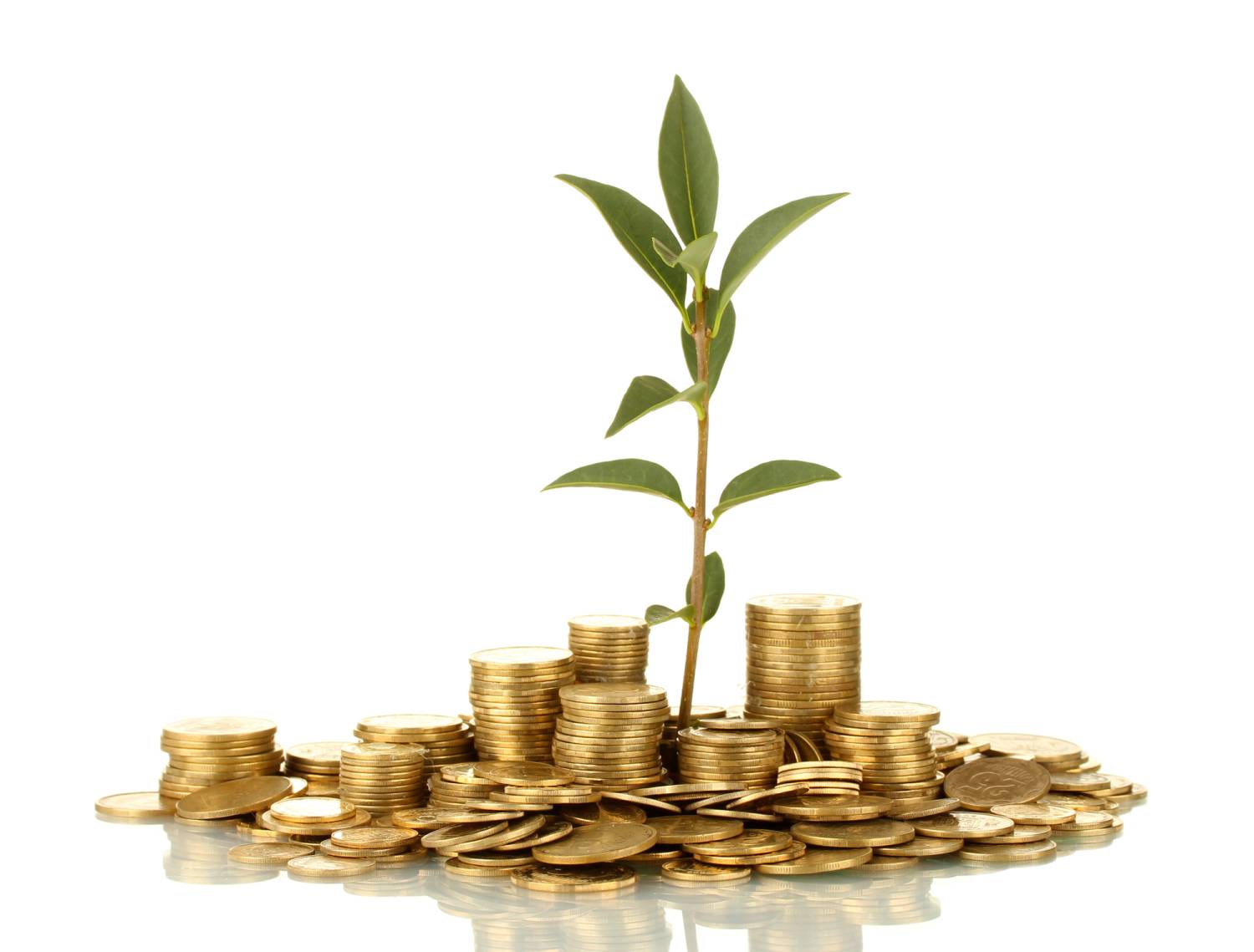
What investment strategy will you use?
There are many different ways that you can invest:
- Positive cash flow property (which I talk about a lot)
- Negative gearing for capital growth
- Do renovations to increase value
- Subdivide a property
- Do larger developments
- Do a buy and hold
- Buy units
There are many different things you can do when you invest in property, so you need to work out what investment strategy you think suits you.
Find a good property manager and let them do their job
A property manager is usually a licenced real estate agent that is a professional in their field; their job is to keep things for you and your tenant. They can help you with ongoing advice and help you manage your tenants and get you to get the best possible value from your property; the right agent will let you know when you should review rents and when you shouldn't.
The property manager should be able to give you advice on property law, your rights and responsibilities as a landlord – as well as those of the tenant. They'll also take care of any maintenance issues, although you should approve all incurred costs (other than certain emergency repairs), in advance.
The property manager will also help you find the right tenant, conduct reference checks and make sure they pay their rent on time. It is also essential that you don't interfere too much with tenants because there are laws that give them rights, so always try to respect them. You should, however, make regular independent inspections of your property to make sure that the tenant is looking after your investment but always go through your agent and give plenty of notice.
The good news is that the cost you pay to your managing agent is usually a percentage of the rent paid, is deducted from the lease and is tax-deductible
Understand the market and the dynamics where you are buying
Consider what other properties are available in the immediate area and speak to as many locals and real estate agents as you can – they'll let you know if one side of a street is considered superior to the other. I always like to let competing agents know that I am looking at another similar property to see what they say; it's a good trick to get inside information. Make sure you do the leg work and consult professionals you can trust. Accessing independent information from a source such as RP Data can give you information on average rents, property values, demographics and suburb reports.
You can access a lot of information on the Internet, but if you want a free RP Data Report, contact us, and we'll be happy to provide you with one free of charge as we subscribe to their services. It is also a good idea to find out what changes may be happening in your suburb, and the local council can often help here. For example, a significant construction next to your property could make it harder to find a tenant at the right price or a planned by-pass may mean traffic will be reduced, and this may increase the value of your property quicker than expected.
Pick the right type of mortgage to suit you
There are many options when it comes to financing your investment property, so get sound advice in this area as it can make a big difference to your financial well-being. It is surprising how many people spend too much time researching mortgages in an attempt to save a few dollars a month, rather than spending that time on researching their local real estate market where much more significant gains can be had. I've seen some brilliant people haggle passionately with a lender over a few dollars a month on their home loan, only to pay $100,000 over the reserve price at auction for a property.
Interest on an investment property loan is generally tax-deductible, but some borrowing costs are not immediately deductible and knowing the difference can count. Structuring your loan correctly is critical, and this should be done with the help of a trusted financial advisor. I always avoid mixing up investment property loans with your home loan; they need to be separate so you can maximize your ongoing taxation benefits and reduce your accounting costs.
Whether you choose a fixed-rate loan or a variable rate loan will depend on your circumstances, but consider both options carefully before you decide. Over time variable rates have proven to be cheaper, but selecting a fixed-rate loan at the right time can pay off. Remember that rate usually rises in line with property prices. Hence, increasing interest rates are not always bad news for property investors as they have more than likely had a win on the capital gains front.
Most investment loans should be set up as Interest Only (rather than Principal and Interest) as this increases the tax effectiveness of your investment. If you have a home loan, make sure you try and factor in flexibility. The reason Interest Only loans work well for investment properties is that with a Principal and Interest loan, your negative gearing benefit reduces as you pay down the amount of your loan. You may also want to seriously consider an investment loan that gives you the opportunity of paying interest in advance or has an Offset Account.
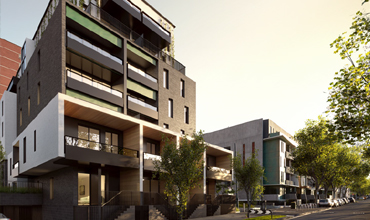
Use the equity from another property
Leveraging equity in your home, or equity from another property investment, can be an effective way to buy an investment property. Equity is the amount of money in your home that you own. It can be calculated by working out the difference between what your property is worth and what you owe on the mortgage. For example, if your home is currently worth $750,000, and you have $250,000 remaining to pay off on the mortgage, you have $500,000 worth of equity. Also, using the equity in your existing home can allow you to borrow more money against your investment property, which will increase your tax deductions.
Negative gearing
Negative gearing can offer property investors certain tax benefits if the cost of the investments exceeds the income it produces. Australian law allows you to deduct your borrowing and maintenance costs for a property from your total income. However, you can only get a tax benefit if you earn other taxable income in the first place. So, while you are making a loss on the property, the advantage is that the loss can be used to reduce the amount of tax on your other earnings. However, don't buy an investment property just to get a tax deduction.
Will you buy old ones or buy new ones?
There are benefits to both. In some states, there are concessions or grants you can get to help you into the market if you are buying a new property as a first-time buyer. They may even void stamp duty or give you a certain amount of money towards it. Buying new also means that you can design a house, particularly for that market and get a great deal of depreciation because it's a brand new property.
However, speak to your accountant about your options because I can't advise on that.
New properties can be excellent, but be careful when purchasing a new property from a property marketing company because they do add commissions on top. Find out what the commissions are and work out what the value of the property is going to be after it's built. Talk to real estate agents in the area as well before you continue.
Check the age and condition of the property and facilities
Even with negative gearing, needing to replace the roof or hot water service in the first few months of ownership could make a significant difference to your profits and damage your cash flow.
It is therefore advisable to engage a professional building inspector before you purchase (and then once a year) to conduct a thorough inspection of the property to find any potential problems.
It is also wise to use a qualified tradesperson who is licensed to carry out the work and who has adequate insurance to protect you against poor workmanship.
It's not always a bad thing to buy a property that is not in peak condition because you get the opportunity to improve the value of the property by fixing the place up, and this can increase your returns for both capital growth and rental income. Now you can't do that when you buy shares.

What type of property are you going to buy?
First, we need to look at purchasing units. With a unit, you're going to have extra costs called strata fees or body corporate fees. These fees can be a pain because it strips your cash flow, and you have very little control over what is done. While you are an investor, there will be people who live in and own the other units. Since these people live there, they will have different ideas for the money versus an investor who just owns the unit.
You could lose a lot of control over your expenses when investing in a unit. But there are also issues to consider when buying a house. Just make sure you do your research and make a wise decision on what kind of property you should invest in.
What area will you buy?
You can't just look at a bunch of properties all over the country and expect to stumble upon something that's a significant investment. I get a lot of emails from people who say a property is discounted for one reason or another, and they think it's a great opportunity. But they don't do any research into the area that they're buying into. Just because a property says it's discounted doesn't necessarily mean it's an excellent area to invest in. Also the property may not even be discounted. It's possible the sellers were asking too much, and you're getting it at market value.
You need to research what area you want to buy in to find out if it will be a good investment. One way you could do this is by purchasing a Residex report. Another method is to use the census to find out about the population and economy.
You could also just find an area you want to invest in. It doesn't have to be where you live because even though you want to live in an area that doesn't mean that it's an excellent area to invest in. Always look outside and choose an area based on the growth potential and what you're going to achieve financially.
What are the vacancy rates like?
It's Important to remember that just because a property has a high rental yield doesn't mean that it's going to be tenanted for the entire year. This is really important to remember with student rentals. If you rent somewhere, that's just for a university, keep in mind that universities aren't open in December, January or February, and students only come in March.
Not having the property rented for the entire year can cause serious cash flow issues, and over the year, it's going to bring your yield down significantly.
Make the property attractive to renters
Go for neutral tones and keep the kitchen and bathroom in good condition. You'll find that you will attract better quality tenants if you have a well-presented property, and the last thing you want is a lousy tenant.
Another point that is subject to debate is whether you should buy a property that you'd be happy to live in yourself. Some people believe this will mean it is appreciated more, and some people don't care. However, think about differentiating between your own home and your investment to avoid becoming overly involved; remember it is the home of your tenant and not your own.
For me, it is essential to remember the day will come when you'll want to sell the property. If a home is appealing to not only property investors but also owner-occupiers, you'll have a broader market for the property, and this will maximize your selling price. I think that owner-occupiers are willing to pay a little more for the right property because it becomes more emotional rather than a logical purchase.
Take a long-term view and manage your risks.
Remember that property is a long-term investment, and you should not rely on property prices rising straight away. The longer you can afford to commit to a property, the better, and as you build up equity, then you can consider purchasing a second investment property – try not to get too greedy and find the right balance between financial stability and still being able to enjoy life. Financial security is essential, but life is not just about mathematics.
Finally, remain aware that unlike shares or managed funds, you can't just sell part of your investment property if you need money. In short, be cautious, but consider that record migration levels and a rental property shortage are crucial factors favouring investing in property.
Are you willing to get your hands dirty?
Are you willing to be an active investor, or do you want to be a passive investor who owns real estate and doesn't have to do anything? If you're going to get your hands dirty and be actively involved in your portfolio, then you should buy something where you can add value in some way.
Getting your hands dirty doesn't mean doing the renovation personally. It could mean purchasing a property that you're going to subdivide and dealing with town planners to work out the subdivision and have everything passed through the council.
You buy different properties depending on what kind of investor you want to be. For instance, a passive investor isn't going to buy a property that needs a renovation because they would need to be actively involved, whereas an active investor would. After all, they can/want to do it.

Can you afford to lose money?
Let's be honest; not every property is going to be a home run. You are going to buy some properties that are duds. And when you're a new investor and haven't purchased any investment property before the chances of you making a mistake and losing money is much higher.
If you can't afford to lose money, then you need to consider whether or not you should be investing in the first place. If things go wrong, it could mean you're going to become bankrupt or lose your house. Weigh the pros and the cons and consider what the worst-case scenario is and how you would handle it.
Can you afford the repayments?
Regardless of whether your property is going to be negatively or positively geared, what would happen if the property was not rented for an extended period? Could you afford the repayments on it if things don't go 100% to plan?
Do you have an exit strategy?
When it's all said and done, what are you going to do? Having an exit strategy means you can get out of a property while still making a profit and continue to invest.
Because you don't need to purchase a property and own it for life, you may decide to sell after a certain point to access your money. Working out what your exit strategy is going to be before you even purchase an investment property can help you down the line.
Risk vs. Reward
Every financial decision is about weighing the rewards, determining payoff against potential threats. Does investing in real estate make sense for you?
Rewards:
- Your income is passive. Aside from the initial investment and upkeep costs, you can earn money while putting most of your time and energy into your regular job.
- Your income should grow. You don't just earn rental income; as real estate values increase, your investment rises in value.
- You can put real estate into a self-directed IRA.
- Rental income isn't included as part of your income subject to Social Security tax.
- The interest you pay on an investment property loan is tax-deductible.
- Short of another crisis, real estate values are more stable than the stock market.
- Real estate is a physical asset. Investing in stocks or Wall Street products isn't anything you can see or touch.
Risks:
- Although rental income is passive, tenants can be a pain to deal with unless you use a property management company.
- If your adjusted gross income is above $200,000 (single) or $250,000 (married filing jointly), you may be subject to a 3.8% surtax on net investment income, including rental income.2
- Rental income may not cover the total mortgage payment.
- Unlike stocks, you can't instantly sell real estate if the markets go sour.
- Entry and exit costs can be high.
- If you don't have a tenant, you have to pay for all the expenses.
The Bottom Line
Keep your expectations realistic. As with any investment, rental property isn't going to produce a hefty monthly paycheck for a while and picking the wrong property could be a catastrophic mistake.
Consider working with an experienced partner on your first property or rent out your own home to test your landlord's abilities.


